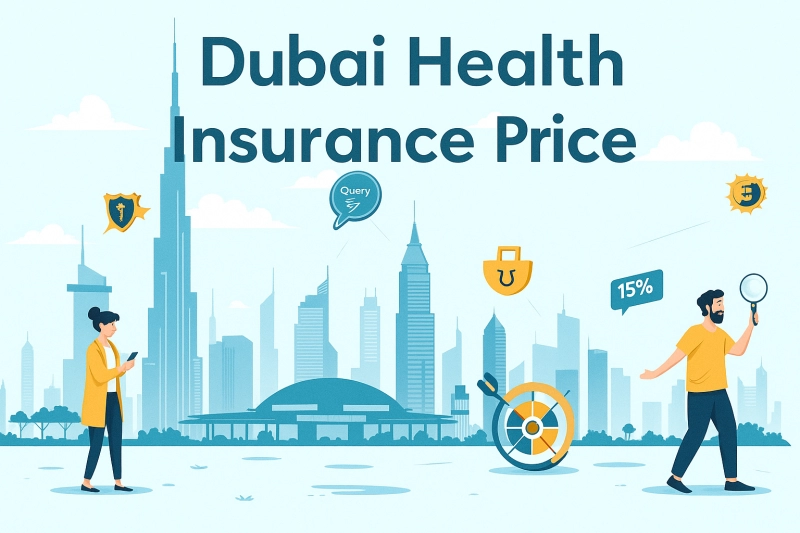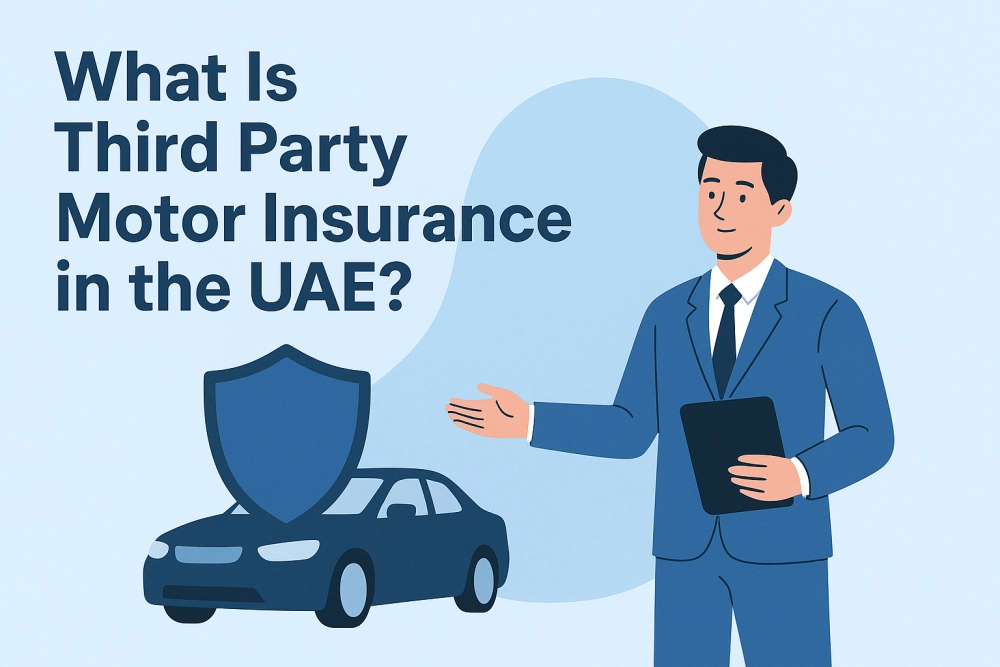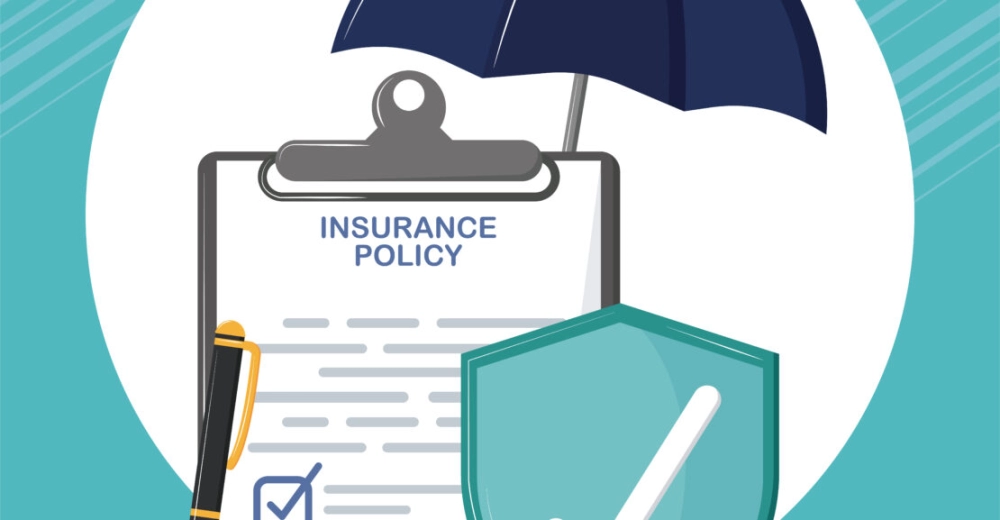Best Motor Insurance Dubai: Get the Best Coverage Today
Before you even think about hitting the incredible roads of Dubai, there's one thing you absolutely must have sorted: motor insurance. This isn't just a suggestion; it's a non-negotiable requirement from Dubai's Roads and Transport Authority (RTA). But think of it less as a rule and more as your essential co-pilot, offering you complete peace of mind on every journey.
Your Essential Introduction to Dubai Motor Insurance
Driving in Dubai is an experience, but without the right insurance, you're not just breaking the law—you're leaving yourself wide open to massive financial headaches if an accident happens. It's the safety net that protects you, your car, and others on the road from the often staggering costs of accidents, theft, or damage.
The sheer number of cars in the city highlights just how crucial this is. The UAE has around 3.9 million registered vehicles, and a staggering 2.1 million of those are right here in Dubai. With that kind of traffic density, having solid insurance isn't just smart, it's essential. If you're curious, you can explore more about the factors driving this market growth and what it means for drivers like you.
Understanding Your Core Options
Getting started is all about understanding the two main types of policies you can choose from. This decision will directly impact how protected you are. Your choices boil down to either Third-Party Liability (TPL) or Comprehensive cover.
"TPL is the bare-bones legal minimum. It handles the costs if you damage someone else's car or property, but it does absolutely nothing for your own vehicle. Comprehensive insurance, as the name suggests, casts a much wider net of protection."
This image really helps to visualise how all the pieces of best motor insurance Dubai fit together, from the policy types to the factors that shape your final premium.
To make the choice even clearer, a side-by-side comparison is often the best way to see the differences at a glance.
Quick Look at Third-Party vs Comprehensive Insurance
This table breaks down exactly what you get (and what you don't) with each policy type. It's the perfect starting point to figure out which level of cover feels right for you.
| Coverage Feature | Third-Party Liability (TPL) | Comprehensive Insurance |
| Your Own Vehicle Damage | Not Covered | Covered (for accidents, fire, theft) |
| Third-Party Vehicle Damage | Covered | Covered |
| Third-Party Injury/Death | Covered | Covered |
| Personal Injury to Driver | Not Covered (unless added on) | Covered (often included or as an add-on) |
| Cost | Lower Premium | Higher Premium |
| Legal Requirement | Meets Minimum | Exceeds Minimum |
As you can see, while TPL gets you on the road legally, comprehensive cover is what truly protects your own investment and gives you that extra layer of security against the unexpected.
Understanding the Legal Mandate for Car Insurance
In Dubai, getting car insurance isn't just a smart move to protect your finances—it's the law. The moment a vehicle is registered in your name, you're legally obligated to have it insured before you even think about hitting the road. This isn't just bureaucratic red tape; it's a rule strictly enforced by Dubai’s Roads and Transport Authority (RTA) for a very good reason.
Think of it as a community-wide safety net for every driver. By making insurance mandatory, the law ensures there's a financial backstop ready to handle the costs if an accident happens. This protects everyone involved, guaranteeing that a single collision doesn't spiral into a financial catastrophe for the people whose property or health is affected.
This mandatory approach is a huge factor in why the UAE is a cornerstone of the regional insurance market. In fact, the Middle East and Africa motor insurance market was valued at a massive USD 44.88 billion and is expected to climb to USD 66.47 billion by 2030, largely because of these regulations.
The Minimum Legal Requirement
So, what's the absolute bare minimum you need? It all starts with a Third-Party Liability (TPL) policy. This is the foundational coverage required to legally register and drive your car in Dubai. As the name suggests, it’s designed to protect other people (the "third party") from any damage you cause while driving.
If you’re found to be at fault in an accident, your TPL insurance steps in to cover:
- • Damage to another person's car or property.
- • Bodily injury or, in the worst case, the death of a third party, covering their medical bills and related compensation.
What TPL doesn't cover is crucial to remember: it offers zero protection for your own car or your own injuries. For that, you’d need to look at more comprehensive coverage. To get a clearer picture of this baseline policy, check out our full guide on third-party car insurance and how it works here in the UAE.
The Consequences of Non-Compliance
Driving without valid insurance in Dubai is a serious offence, and the authorities have a zero-tolerance stance. The penalties aren't just a minor inconvenience; they're designed to be a real deterrent.
"Getting caught without insurance is far more than a simple slap on the wrist. The fines and penalties are structured to reinforce just how critical continuous, valid coverage is for every single vehicle on the road."
If you're caught driving an uninsured vehicle, the consequences are swift and stack up quickly:
- A hefty fine of AED 500.
- Four black points added to your driving record.
- Your vehicle will be impounded for seven days.
When you look at the numbers, it’s clear. The cost of a basic insurance policy is a tiny fraction of the financial pain and logistical headache that comes with being caught without it. Keep your best motor insurance Dubai policy active is the first, and most important, step towards responsible and worry-free driving in the emirate.
Choosing Your Coverage: Third-Party vs. Comprehensive
When you step into the world of motor insurance in Dubai, you're faced with two main paths. This choice is a big one—it sets the foundation for your financial protection on the road. It isn't just about picking the cheapest option; it’s about matching your coverage to your car's value, your budget, and frankly, how much risk you're willing to take on yourself.
Let's imagine a common scenario: you're driving and cause a minor fender bender. The other car has a dented bumper and a cracked taillight. This is where your policy choice really shows its worth. Let’s see how each type of insurance would handle this exact situation.
The Foundation: Third-Party Liability
Third-Party Liability (TPL) is the absolute legal minimum for motor insurance in the UAE. Think of it as a one-way shield. It’s designed to protect everyone except you and your own car. The "third party" is anyone else whose property you damage or who you injure in an accident you've caused.
So, in our fender bender example, a TPL policy would step in to cover:
- The cost to repair the other driver's dented bumper.
- The bill for replacing their broken taillight.
- Any medical expenses if they were injured in the accident.
What about your car? The scratch on your paint, the dent in your fender—that's all on you. TPL provides zero financial help for your own vehicle's repairs or your own injuries if you were at fault. It’s the most basic, no-frills option, which often makes it a practical choice for older cars with a lower market value.
The All-Encompassing Shield: Comprehensive Insurance
Now, let's hit rewind on that same fender bender, but this time, you have Comprehensive insurance. This policy is more like a 360-degree shield. It automatically includes all the protection of TPL, but here's the crucial difference: it also covers damage to your own vehicle, no matter who was at fault.
With a comprehensive plan, your insurer would sort out the costs for the other driver's car and the repairs for yours. That's the main selling point, but its protection goes much further than just collisions.
"Comprehensive insurance is your defence against a whole host of real-world risks. It kicks in where TPL can't, protecting your investment from things like fire, theft, vandalism, and even damage from natural events like the floods we sometimes see across the UAE."
This complete peace of mind is why it's the go-to recommendation for new or high-value vehicles. The higher premium you pay is a direct reflection of this much wider safety net.
Making the Right Choice for You
So, which one is it? The best choice really boils down to your personal circumstances. If you're driving an older car where the cost of a major repair would be more than the car is even worth, the affordability of TPL might just be the smart play.
For most drivers, though, especially those with newer or more valuable cars, comprehensive cover is the wiser investment. That slightly higher cost buys you significant peace of mind and protects you from repair bills that could otherwise be financially devastating. The key is to compare your options to find that sweet spot between cost and coverage. Ultimately, the right best motor insurance Dubai plan is the one that lets you get behind the wheel without constantly worrying about the financial "what-ifs."
What Really Determines Your Insurance Premium
Ever gotten a car insurance quote and scratched your head, wondering where that final number actually came from? It’s not just pulled out of thin air. Your motor insurance premium in Dubai is the end result of a very detailed risk assessment by the insurer. They're weighing up a whole host of factors to figure out how likely you are to make a claim.
Think of it as your own personal financial fingerprint. Each piece of information helps paint a bigger picture of your risk profile. The great thing is, once you understand what these pieces are, you gain the power to influence your own costs. Some things you can change, others you can't, but knowing about all of them is the secret to getting the best price possible.
Your Driving Profile and History
First and foremost, insurers look at you—the driver. They're most interested in your experience and what your track record behind the wheel looks like. It makes sense, right? A driver with a decade of safe, incident-free driving is a much lower risk than someone who just got their licence last week.
This is why your age and driving history carry so much weight. A 40-year-old with a ten-year clean slate will almost always get a better quote than a 22-year-old who’s new to the road.
Your claims history is the other major part of this puzzle. If you've built up a No-Claims Discount (NCD), that’s solid proof of your good driving habits, and insurers will reward you with some pretty hefty savings. On the flip side, if you've had recent at-fault accidents, you can expect your premium to jump by 10-15%, as this flags you as a higher risk.
The Vehicle You Drive
The car you're insuring plays a huge part in the final calculation, too. Insurers zoom in on several vehicle-specific details to work out the premium for your motor insurance Dubai policy.
A few key things they look at are:
- Make and Model: It's no surprise that a high-performance sports car costs more to insure than a standard family saloon. They have powerful engines, higher repair costs, and statistically, a greater chance of being in an accident.
- Vehicle Age: When it comes to comprehensive plans, newer cars often cost more to insure. Their parts are more expensive, and their market value is higher, which means a bigger payout for the insurer if the car is a total loss.
- Declared Vehicle Value: For comprehensive insurance, the price is directly linked to the car's Agreed Value or Market Value. This figure represents the maximum amount the insurer will pay if your car is written off. Naturally, a more valuable car means a higher premium.
"Insurers basically use a complex algorithm to cross-reference your personal risk profile with your vehicle's risk profile. It's the unique combination of these two that spits out your final premium."
All of this happens within a big, bustling market. The UAE's motor insurance sector was recently valued at around USD 1.41 billion and is expected to climb to USD 1.77 billion by 2030. This growth is driven by more people buying cars and strict government rules that make consumers more aware of the need for good insurance. You can read more about the UAE's motor insurance market trends to get the bigger picture.
Getting to grips with these premium factors takes the mystery out of the quoting process. It shows you that the price isn't random—it's a logical calculation based on risk. And that empowers you to make smarter choices when you're comparing policies.
Right, you've got a solid grasp of the different types of car insurance available. Now for the exciting part: actually finding and buying the policy that's perfect for you. Securing the best motor insurance in Dubai isn't about just grabbing the cheapest quote you can find. It’s about a smart comparison to find the policy that offers the best real-world value.
This is your action plan. We'll walk you through everything, from getting your documents ready to confidently choosing a plan that genuinely has your back.
First things first, let’s get your paperwork in order. Insurers need a few key documents to give you an accurate quote, and having them ready beforehand makes the whole process a breeze.
Here’s what you’ll typically need:
- A valid Emirates ID (both sides).
- Your UAE driving licence.
- A copy of your vehicle registration card (the Mulkiya).
It's absolutely critical that your vehicle registration is up to date before you can get it insured. If you need a refresher on this, we've got a helpful breakdown on handling your vehicle registration renewal to make sure you're fully compliant.
Analysing Your Insurance Quotes
Once the quotes start rolling in from different insurers, the real work begins. It’s so tempting to just glance at the final price and pick the lowest one, but trust me, the cheapest policy is almost never the best one. You need to dig a little deeper into what each quote is actually offering.
" The premium is only one piece of the puzzle. A low price might be hiding a massive deductible, very limited coverage, or a terrible claims process—any of which could cost you a fortune down the road. "
Pay close attention to the deductible, sometimes called the excess. This is the amount you have to pay out of your own pocket for a claim before your insurance coverage kicks in. A lower premium often means a higher deductible, so it's all about finding a balance you're truly comfortable with. It’s also wise to check out the insurer’s reputation for handling claims. A great price is worthless if they're impossible to deal with when you need them most.
Weighing Up the Add-Ons
Most comprehensive policies come with the option to add extra layers of protection. These add-ons are brilliant because they let you customise your coverage to fit your lifestyle, giving you peace of mind that goes beyond the standard terms. Think about your daily driving habits, the age of your car, and where you travel to decide what's worth adding.
Here's a look at some of the most popular add-ons and what they bring to the table.
Smart Add-Ons for Your Dubai Motor Insurance Policy
| Add-on Cover | What It Covers | Who Should Consider It? |
| Roadside Assistance | Covers towing, battery jump-starts, flat tyre changes, and emergency fuel delivery. | An absolute essential for almost every driver. It’s the safety net you'll be grateful for when something unexpected happens. |
| Personal Accident Cover | Provides compensation for injury or death to the driver and passengers in your vehicle. | A vital add-on for anyone who wants to make sure their loved ones are financially protected in a worst-case scenario. |
| Agency Repair | Guarantees that repairs will be done at the official dealer’s workshop, using original manufacturer parts. | Highly recommended for new or high-value cars to maintain their condition, performance, and resale value. |
| Oman Cover | Extends your comprehensive policy to cover you while driving in Oman. | A must-have for anyone who plans on taking road trips across the border for a weekend getaway or holiday. |
Ultimately, choosing the right add-ons transforms a good policy into a great one, perfectly suited to you.
How To Navigate The Claims Process After An Incident
Let's be honest, getting into a car accident or discovering your car has been stolen is incredibly stressful. But in the middle of that chaos, having a clear game plan can make all the difference. Knowing the right steps for your motor insurance claim in Dubai will help you manage the situation efficiently and, hopefully, with a lot less anxiety.
The first, most important thing to do at the scene of an accident is to make sure everyone is safe. Once that's handled, your very next call should be to the Dubai Police. Don't move your vehicle unless an officer tells you to—it can seriously complicate things later. That police report isn't just a piece of paper; it's the most critical document you'll need.
"In the UAE, no insurance company will even look at a vehicle damage claim without an official police report. It’s the key that unlocks the entire process, establishing the facts and allowing you to claim, regardless of who was at fault."
Kicking Off Your Claim With The Insurer
With the police report secured, it's time to contact your insurance provider right away. Most insurers have a strict window for reporting an incident, so you don't want to delay. This first notification is what gets the ball rolling on your claim.
To formally start the process, you'll need to submit a few key documents. Having these ready will speed things up significantly.
- A copy of the official police report
- Your vehicle registration card (Mulkiya)
- A copy of your driving licence
- The completed claim form from your insurer
Once your paperwork is in, the insurer will arrange for a surveyor to inspect your vehicle. This expert evaluates the extent of the damage and estimates the cost of repairs. Their assessment determines whether the car will be fixed or, if the damage is severe, declared a total loss.
From Assessment To Getting Your Car Back
After the assessment, your insurer gives the green light for repairs at an approved garage. If your comprehensive policy includes an "agency repair" benefit, your car heads to the official dealer’s workshop. If not, it will be sent to one of the insurer's trusted network garages.
During this stage, keeping the lines of communication open with both your insurance provider and the garage is key. Check in regularly for updates on the repair status to make sure everything is moving along as it should. For a deeper dive into the fine print of this process, check out our guide on making a best motor insurance claim in Dubai.
Understanding how this all works demystifies what happens after an accident. By methodically following these steps—from getting the police report to managing the repair phase—you can navigate your insurance claim with confidence and get back on the road sooner.
It's also a good idea to know exactly what your policy covers at all times. For a quick guide on this, our article explains how to check your car insurance policy online in just a few clicks.







